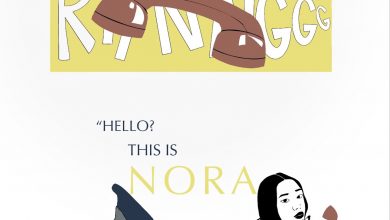Autism Speaks Needs to Sit Down and Shut Up
April is National Autism Awareness Month, which means that for an entire month, cashiers at the grocery store ask me if I want to donate to Autism Speaks. Typically, my response is a “nope” and an internal stinkface.
Autism Speaks is America’s largest autism advocacy organization. According to their mission statement, they want to raise awareness about autism spectrum disorder, more commonly referred to as autism. They also want to ensure that autistic individuals and their families have a higher quality of life. It sounds like a good plan, except that Autism Speaks does almost everything wrong.
One autistic person, who preferred to remain anonymous, said about the organization:
“According to Autism Speaks I am a burden to my family and society. In addition, by excluding the views of actual autistic people, it, ironically, doesn’t allow me to speak out about my own experience.
Autism has brought a lot of difficulty to my life, but also a lot of good things, and I don’t want that to be forgotten in the terror and stigma surrounding the diagnosis. Shoving autistic voices aside is a HUGE problem in many organizations, professions, and academic fields that primarily work with autistic people, but the fact that Autism Speaks is so prolific makes it especially problematic.”
In terms of money, Autism Speaks give very little to the people they say they help. Charity Navigator rates the organization 1 out of 4 stars financially.
According to their 2012 financial statement, Autism Speaks’ total expenses for the year added up to just over $64 million.
The largest percentage went to salaries, and the next largest amount was spent on science grants and awards for autism research. Meanwhile, only a little more than $2 million was spent on “family services and awards.”
In fact, there is a petition for the IRS to investigate Autism Speaks regarding its status as a non-profit organization because of their finances.
Not only does Autism Speaks give very little to autistic people, but they also exclude autistic voices, which is extremely problematic. Looking at Autism Speaks’ Board of Directors and Leadership, it’s difficult to tell if any of the people in these important positions actually are on the autism spectrum themselves. In fact, most of them are “parents of children with autism,” which seems pretty dubious to me. I don’t doubt that as family members of autistic individuals, they are affected. However, their experiences are entirely different from the experiences of autistic people themselves, and it shows in their attitudes toward autism.
They essentially describe autism as something akin to the plague, or at best, a “crisis.” In 2009, Autism Speaks released and then quickly removed a video titled “I Am Autism.” In it, the voice-over said,
“I am Autism… I work very quickly. I work faster than pediatric aids, cancer, and diabetes combined. And if you’re happily married, I will make sure that your marriage fails. Your money will fall into my hands, and I will bankrupt you for my own self-gain… You have no cure for me. Your scientists don’t have the resources, and I relish their desperation.”
What kind of “advocates” describe the people they’re supposed to help as the causes of failed marriages and bankruptcy?
Not to mention, Autism Speak fails to acknowledge that autism is not simply one disorder but a wide range that is referred to as autism spectrum disorder (ASD). According to the National Institute of Mental Health,
“The term “spectrum” refers to the wide range of symptoms, skills, and levels of impairment or disability that children with ASD can have. Some children are mildly impaired by their symptoms, while others are severely disabled.”
Autism Speaks says roughly the same thing on their own website, but they still act like autism is simply one disease that is inherently bad. As an organization, some of their activities are helpful, such as funding research. Research is key to understanding autism and helping autistic people. For example, research has helped to find medications that, while they cannot cure autism, can help abate symptoms like an inability to focus or seizures.
However, Autism Speaks’ emphasis on finding a cure and their constant fear-mongering make it seem as though future generations need to be “saved” from autism, instead of actually allowing autistic people’s voices to be heard.
If you are interested in helping an autism advocacy group that actually has autistic voices, please check out:




